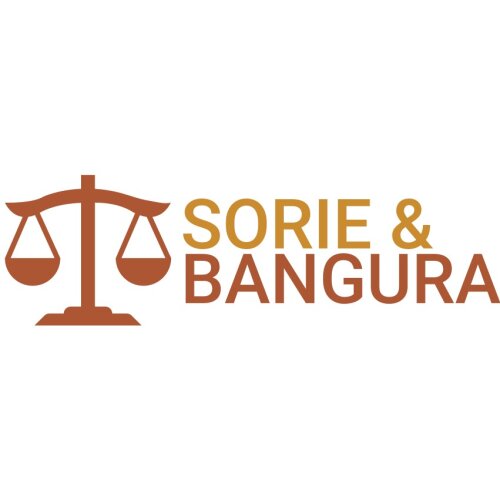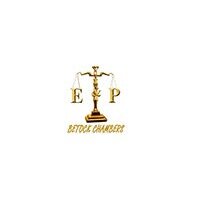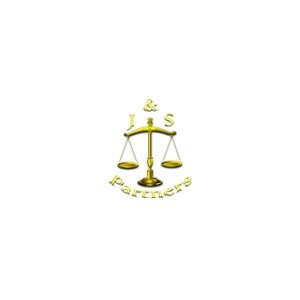Best Real Estate Due Diligence Lawyers in Sierra Leone
Share your needs with us, get contacted by law firms.
Free. Takes 2 min.
Free Guide to Hiring a Real Estate Lawyer
Or refine your search by selecting a city:
List of the best lawyers in Sierra Leone
About Real Estate Due Diligence Law in Sierra Leone:
Real Estate Due Diligence in Sierra Leone involves the thorough investigation and verification of property-related documents and information to ensure the legality and legitimacy of a real estate transaction. This process is crucial to identify any potential risks or issues that may impact the investment or ownership of the property.
Why You May Need a Lawyer:
You may need a lawyer for Real Estate Due Diligence in Sierra Leone to guide you through the complex legal processes, review and analyze documents, negotiate terms, and address any legal issues that may arise during the due diligence process. A lawyer can help protect your interests and ensure a smooth transaction.
Local Laws Overview:
In Sierra Leone, the key laws relevant to Real Estate Due Diligence include the Lands Act, the Registration of Titles Act, and the Mortgage Act. These laws govern land ownership, registration of titles, and mortgage transactions. It is important to comply with these laws to ensure the validity and enforceability of real estate transactions.
Frequently Asked Questions:
1. What documents are typically reviewed during Real Estate Due Diligence?
During Real Estate Due Diligence in Sierra Leone, documents such as land title deeds, survey plans, lease agreements, and property tax receipts are typically reviewed to verify ownership, boundaries, encumbrances, and compliance with regulations.
2. How long does Real Estate Due Diligence usually take in Sierra Leone?
The timeline for Real Estate Due Diligence can vary depending on the complexity of the transaction and the availability of documents. It is advisable to start the due diligence process as early as possible to allow for thorough review and analysis.
3. What are some common issues that may arise during Real Estate Due Diligence?
Common issues that may arise during Real Estate Due Diligence in Sierra Leone include unregistered land titles, boundary disputes, outstanding property taxes, undisclosed encumbrances, and non-compliance with zoning regulations. It is important to address these issues promptly to avoid complications.
4. How can a lawyer help with Real Estate Due Diligence?
A lawyer can provide legal expertise, conduct comprehensive due diligence, identify potential risks, negotiate terms, draft legal documents, and assist in resolving any legal issues that may arise during the real estate transaction. A lawyer can help protect your interests and ensure a successful transaction.
5. What is the role of the government in Real Estate Due Diligence?
The government in Sierra Leone plays a regulatory role in real estate transactions by enforcing laws related to land ownership, registration of titles, and mortgage transactions. It is important to comply with government regulations to ensure the validity and legality of real estate transactions.
6. How can I verify the authenticity of property documents in Sierra Leone?
To verify the authenticity of property documents in Sierra Leone, you can request certified copies from the relevant authorities, conduct physical inspections of the property, and consult with legal professionals or real estate experts who can assist in verifying the legitimacy of the documents.
7. What are the consequences of not conducting Real Estate Due Diligence?
Not conducting Real Estate Due Diligence in Sierra Leone can lead to potential risks such as purchasing a property with disputed ownership, undisclosed encumbrances, or non-compliance with regulations. This can result in legal disputes, financial losses, and difficulties in transferring or selling the property in the future.
8. Can I conduct Real Estate Due Diligence on my own without a lawyer?
While it is possible to conduct some level of due diligence on your own, it is advisable to seek legal assistance from a qualified lawyer experienced in Real Estate Due Diligence in Sierra Leone. A lawyer can provide valuable expertise, guidance, and protection throughout the due diligence process.
9. How can I ensure compliance with local laws during Real Estate Due Diligence?
To ensure compliance with local laws during Real Estate Due Diligence in Sierra Leone, it is important to engage a lawyer who is knowledgeable about the relevant legal framework, conduct thorough due diligence, and seek guidance from government authorities or legal professionals when necessary. Compliance with local laws is essential to a successful real estate transaction.
10. What should I do if I encounter legal issues during Real Estate Due Diligence?
If you encounter legal issues during Real Estate Due Diligence in Sierra Leone, it is important to consult with a lawyer immediately. A lawyer can help assess the situation, provide legal advice, negotiate with the other party, and take appropriate legal action to protect your interests and resolve the issues effectively.
Additional Resources:
If you require legal advice or assistance with Real Estate Due Diligence in Sierra Leone, you can contact the Sierra Leone Bar Association, the Ministry of Lands, Housing and Environment, or reputable law firms specializing in real estate law. These resources can provide valuable information and support for your legal needs.
Next Steps:
If you need legal assistance with Real Estate Due Diligence in Sierra Leone, it is recommended to contact a qualified lawyer with experience in real estate law. A lawyer can guide you through the due diligence process, protect your interests, and ensure a successful real estate transaction. Be proactive in seeking legal advice to mitigate risks and secure your investment in real estate.
Lawzana helps you find the best lawyers and law firms in Sierra Leone through a curated and pre-screened list of qualified legal professionals. Our platform offers rankings and detailed profiles of attorneys and law firms, allowing you to compare based on practice areas, including Real Estate Due Diligence, experience, and client feedback.
Each profile includes a description of the firm's areas of practice, client reviews, team members and partners, year of establishment, spoken languages, office locations, contact information, social media presence, and any published articles or resources. Most firms on our platform speak English and are experienced in both local and international legal matters.
Get a quote from top-rated law firms in Sierra Leone — quickly, securely, and without unnecessary hassle.
Disclaimer:
The information provided on this page is for general informational purposes only and does not constitute legal advice. While we strive to ensure the accuracy and relevance of the content, legal information may change over time, and interpretations of the law can vary. You should always consult with a qualified legal professional for advice specific to your situation.
We disclaim all liability for actions taken or not taken based on the content of this page. If you believe any information is incorrect or outdated, please contact us, and we will review and update it where appropriate.
Browse real estate due diligence law firms by city in Sierra Leone
Refine your search by selecting a city.













